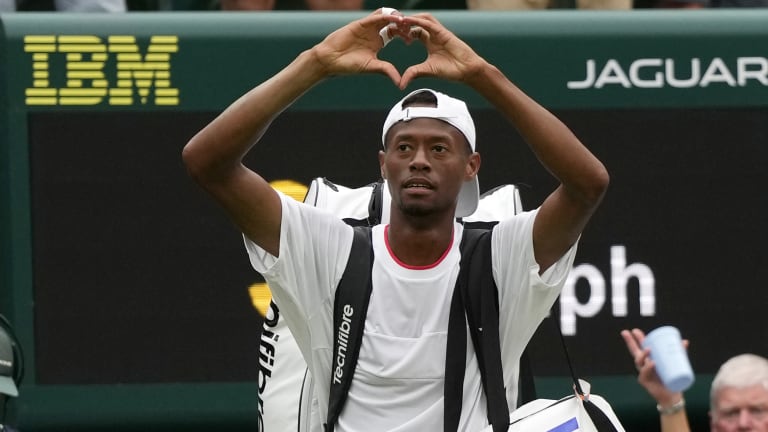Wimbledon
Thanks to Chris Eubanks, tennis dreamers could imagine the feeling of making a Wimbledon run
By Jul 12, 2023Wimbledon
Wimbledon to replace line judges with electronic line calling from 2025
By Oct 09, 2024Wimbledon
The amazing journey of Henry Patten from IBM data logger to Wimbledon doubles champion
By Jul 16, 2024Wimbledon
Hsieh Su-Wei, Jan Zielinski win mixed doubles title at Wimbledon
By Jul 15, 2024Wimbledon
Why Wimbledon Endures
By Jul 15, 2024Wimbledon
Novak Djokovic seeks 2024 answers for Alcaraz and Sinner after great effort: 4 ATP Wimbledon takeaways
By Jul 14, 2024Wimbledon
Carlos Alcaraz is a champion establishing how high he will climb with latest Wimbledon title
By Jul 14, 2024Wimbledon
Nicolai Budkov Kjaer makes history in winning junior boys' Wimbledon title; Renata Jamrichova wins girls' title
By Jul 14, 2024Wimbledon
Carlos Alcaraz beats Novak Djokovic again in Wimbledon final for fourth Grand Slam title
By Jul 14, 2024Wimbledon
For Jasmine Paolini, Barbora Krejcikova was one forehand and one serve too good in the Wimbledon final
By Jul 13, 2024Thanks to Chris Eubanks, tennis dreamers could imagine the feeling of making a Wimbledon run
“Man, I’m really about to play a Grand Slam quarterfinal. I thought that was a really, really cool, cool thing,” the American said Wednesday after being edged out by Daniil Medvedev.
Published Jul 12, 2023
Advertising

Eubanks is projected to rise to a career-high No. 31 in next Monday's ATP singles rankings.
© Copyright 2023 The Associated Press. All rights reserved